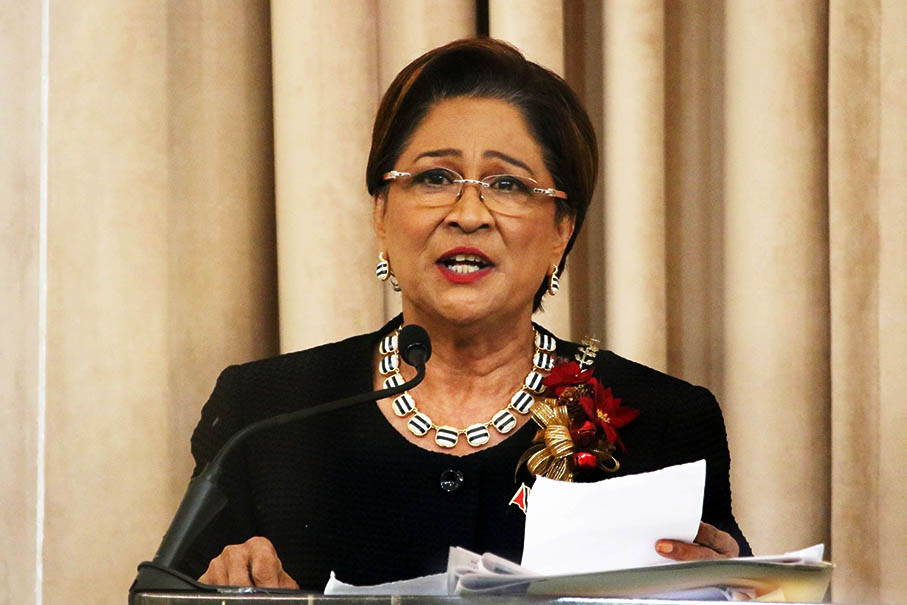(Trinidad Express) – “This budget is a vicious frontal attack on the poor and working classes. It also reeks of fascism. Its wicked policies are designed to benefit the PNM (People’s National Movement) upper-class at the expense of the poor and working class.”
That was the opening remark by Opposition Leader Kamla Persad-Bissessar on Friday, as she tabled her response to the 2023 budget presented by Finance Minister Colm Imbert on Monday.
Stating that the country’s economy is crisis with the business sector heavily polarised and the small and medium enterprise sector severely challenged, she added: “This budget is also an unnecessary provocation of our poor and working class citizens.”
Persad-Bissessar said the Government used depressed oil and gas prices as their justification for not increasing the value of social grants, pension and public assistance to realistic levels as well as for stalling important projects and increasing the price of fuel on several occasions.
“So logically, like everyone else, when world oil, gas and ammonia price skyrocketed as it has done in the past 17 months, dramatically increasing revenue, people expected an opposite response, and at very least a softening of the severely constrictive policies Government had instituted over the past 84 months.
“Like the rest of the population, we were hoping for a budget to address the realities in our country. What happened instead Madam Speaker, the Government’s reaction was to introduce and raise even more taxes, remove even more subsidies. Raise fuel prices yet again and offer unions almost less that minimum wage. Instead of sustainable measures for growth, development and an increase in the quality of life of people, the presentation was a long, tiring, misleading diatribe laced with statistical deceit, bluff and outright manipulation and falsification of data.”
She said a review of the economy shows that there were contractions in multiple sectors in 2021 among which were mining and quarrying (-5.2%), trade and repairs (-4.7%), accommodation and food supplies (-5.9%), information and communication (-0.5%), and professional and scientific services (-2.1%).
“The date first quarter for 2022 shows contraction in the same sectors, but yet the Minister was projecting recovery. So, contrary to the Minister’s claims the TT economy is not growing, it is declining.”
Noting that there was no Covid in 2016, 2017 and 2018 but the country’s Gross Domestic Product (GDP) declined in those years, she said, it is evident that the cause for economic collapse lies not with Covid, but with something more substantial, which lies squarely at the hands and feet of the Finance Minister and the Government.
Labelling Imbert’s projection of a two per cent economic growth for 2023 as a ‘guesstimate’ since it was arrived at by the Ministry of Finance and not the Central Statistical Office (CSO), Persad-Bissessar said: “The Government has no clear policy direction to signal to local and foreign investors where to place their capital. Citizens do not have a clear focus on what sectors will be growing and how to prepare to take advantage of the potential growth sectors through education, training and for employment. Domestic and foreign investors rely on GDP growth as a back of the envelope indicator of economic prosperity in a market when conducting a due diligence and whether to enter increased investments or to withdraw.
“Investors will look on with great concern at an energy-based economy which continues to record declines in the face of very high prices in the energy sector. Foreign investors will form one conclusion…the environment for business is not favourable, and this is a critical reason why the economy continues to slide downwards under this Government. No amount of marketing can mask a failing economy.
“This year’s budget offers no hope that Government has a plan outside of remaining dependent on the declining energy sector.”






